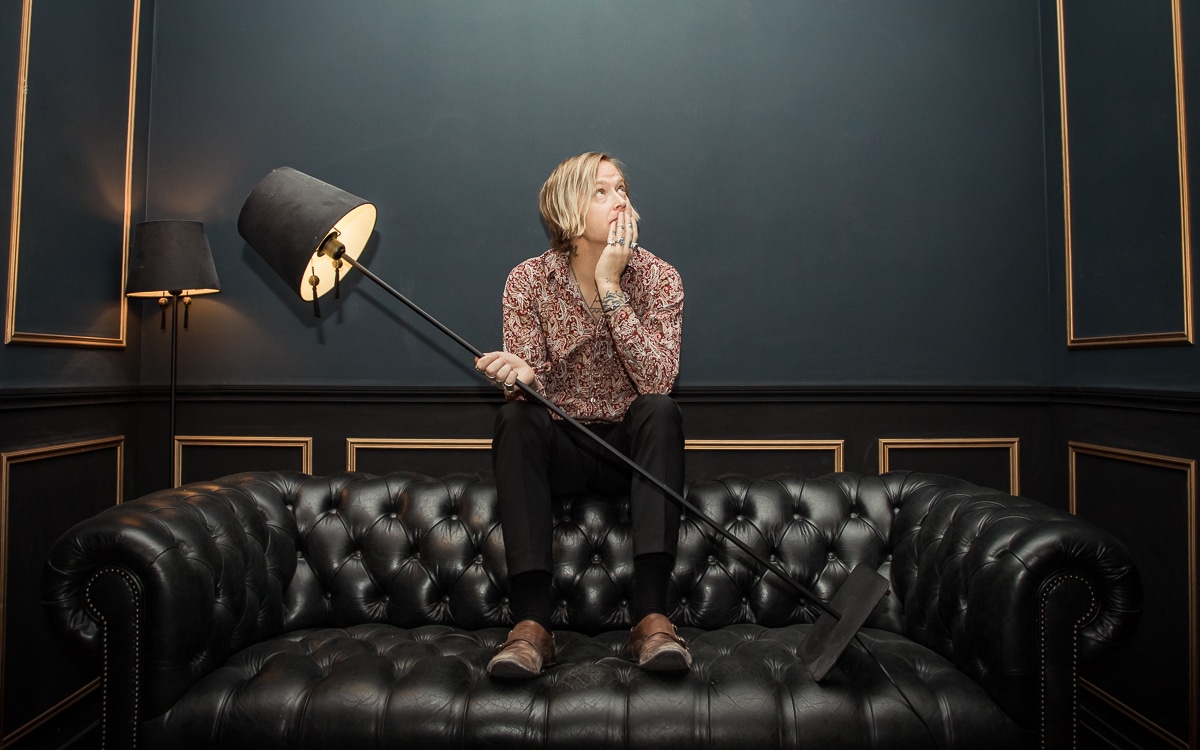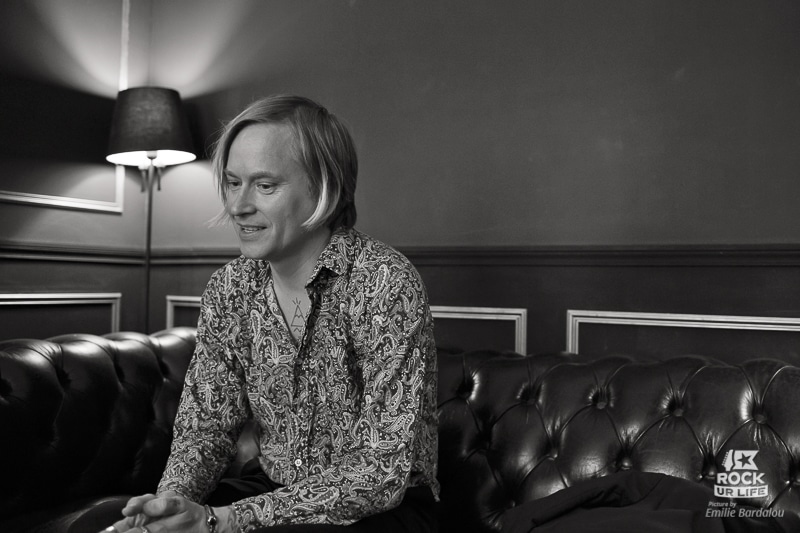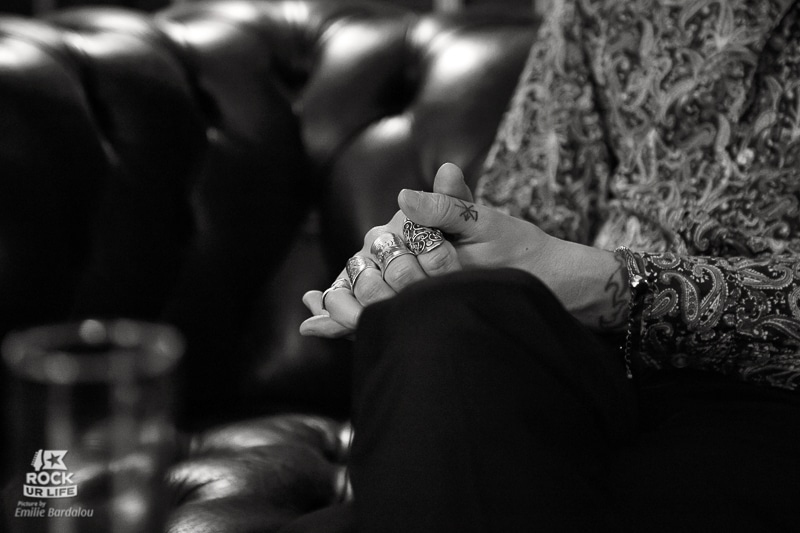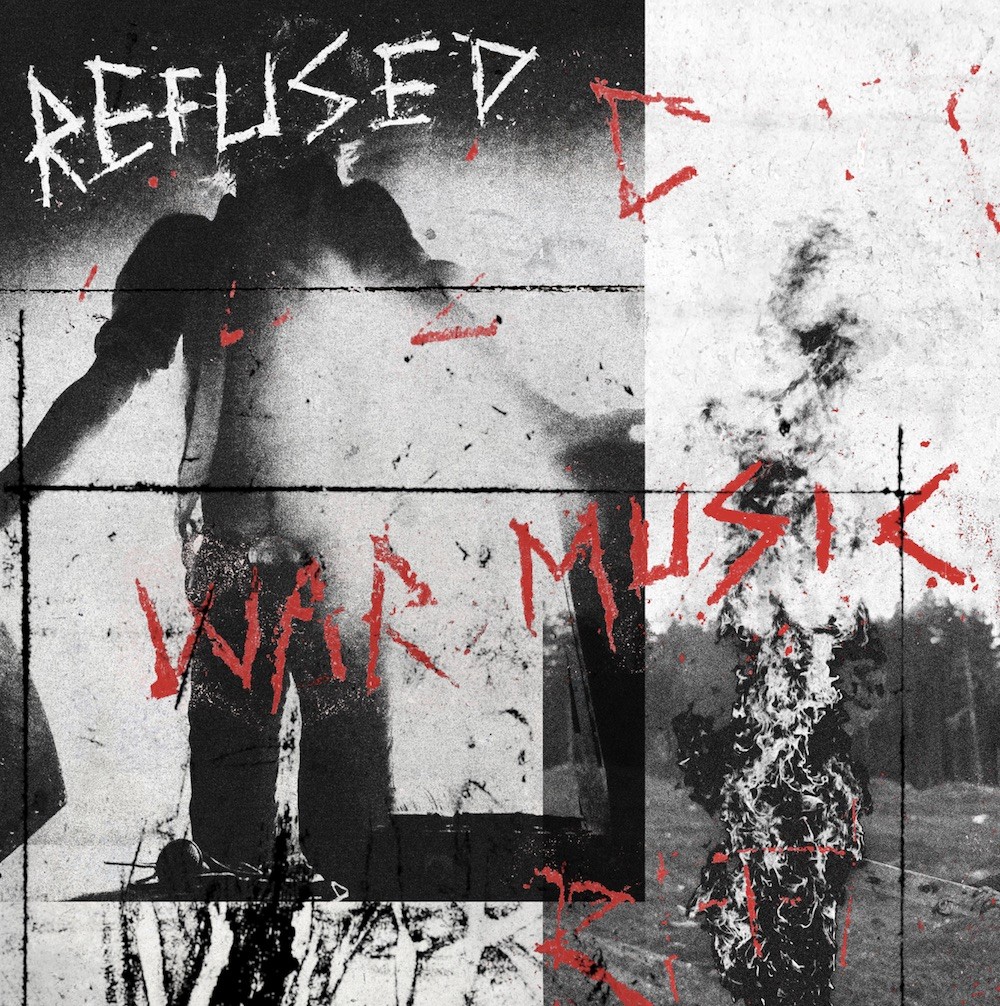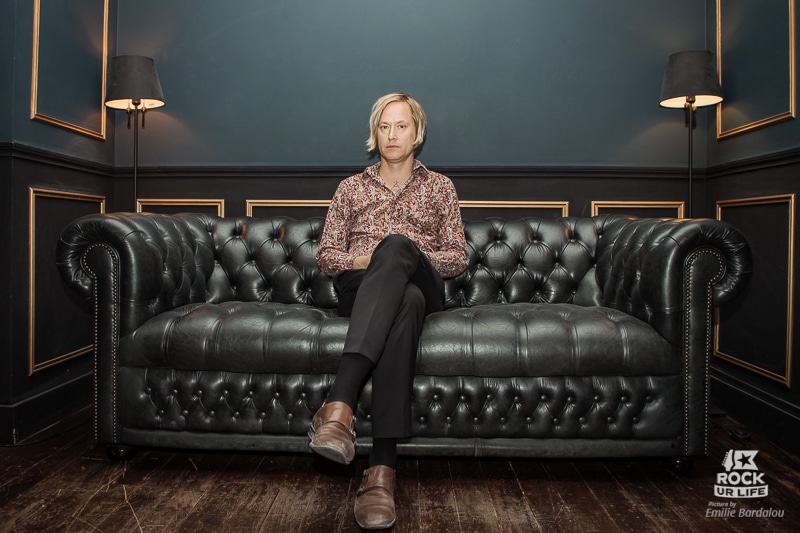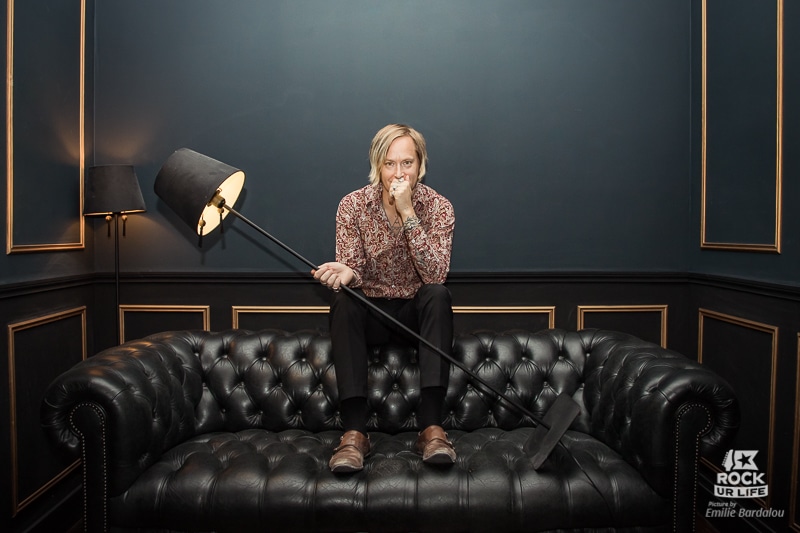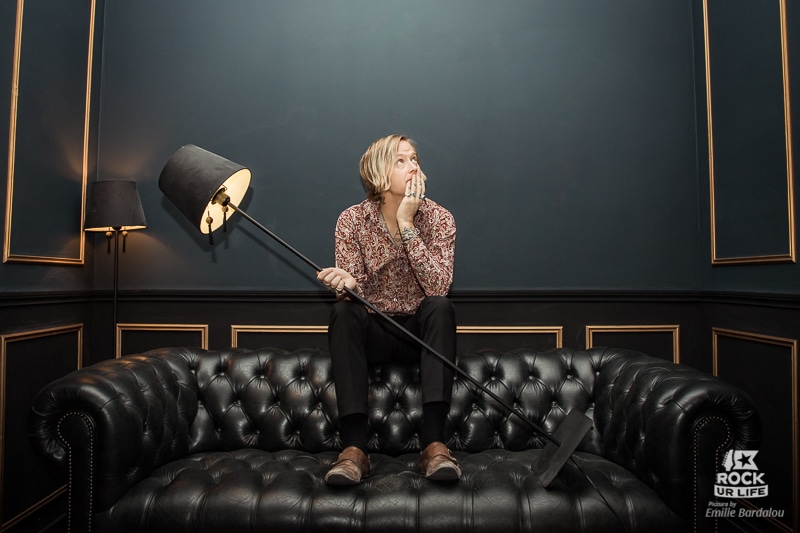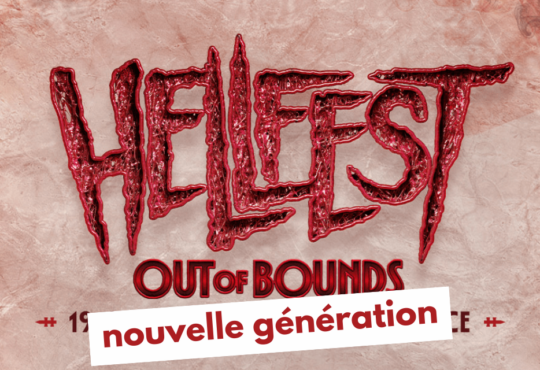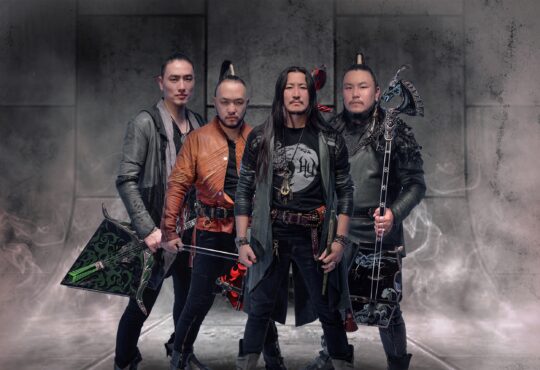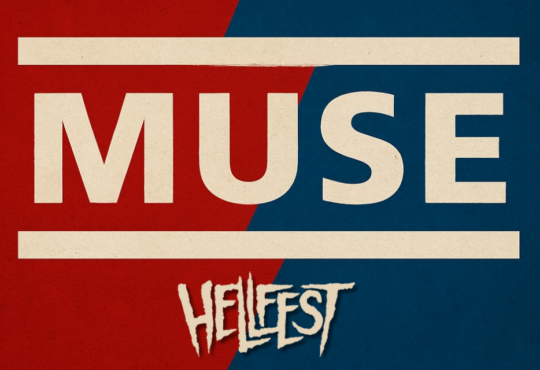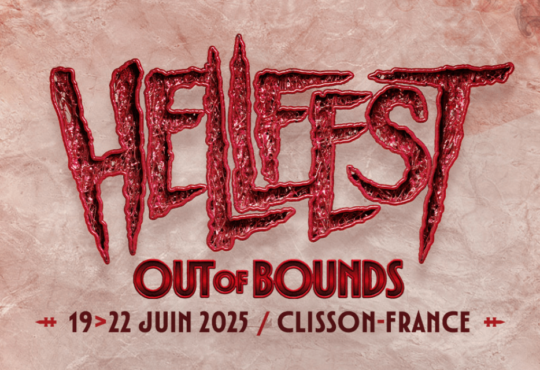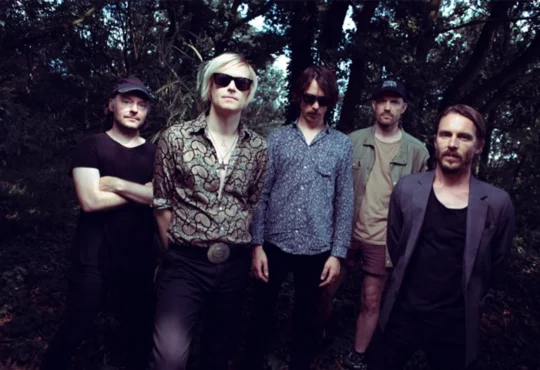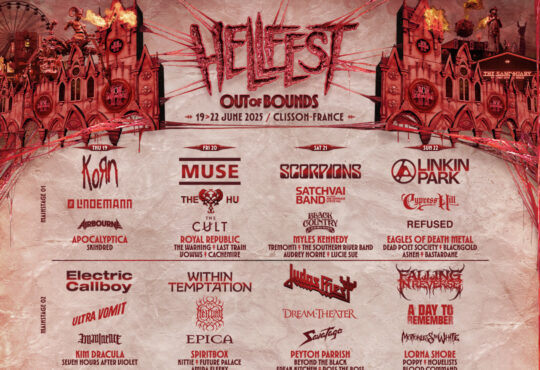Refused is about to release its fifth studio album “War Music”. RockUrLife got the chance to discuss with the frontman Dennis Lyxzén about his commitment towards feminism, the new record and the band’s participation in “Cyberpunk 2077”.
To start the interview, we would like to come back to your performance at Hellfest 2016. We were very impressed with the speech you gave back then. It was pro feminist and powerful. You mentioned that among the 180 or so bands that played, there were only 6 women on stage. Then you encouraged women to take their instruments, start bands and just go for it. You also said that you wouldn’t want to live in a world where half of the population was scared of you. So, what it means to you to be feminist, especially in 2019?
Dennis Lyxzén (vocals): I’ve been a feminist my entire conscious life. You look at the world, you see injustice and you see how the world is structured. It was through bands like Bikini Kills that I discovered feminism as an ideology. I’ve been reading a lot about it, about gender structures and stuff like that. If you see injustice in the world, you see half of the population, women are afraid of men because of sexual abuse and the way the world is set up. Patriarchal system is definitely a way to control women. It’s an important part of understanding the world, understanding the way we relate to each other.
It’s always ironic that as a man I talk about this a lot but’s it’s important on a personal level for men to listen to their female friends and partners. Listen to their stories, their relation to the patriarchal system, how it is to grow up in a culture so full of violence, abuse and rape. How that affects women.
One thing I can do is go up on stage and talk about it because someone is dumb enough to give me a microphone. That’s what I try to do. The energy of our band is very masculine. I like to think that the way I move on stage is not that masculine. When I talk about feminism there is this contradiction in what Refused presents. I think that’s great. You can see some guys saying, “fuck that” and then we play “New Noise” and they say: “wow this is great”. (laughs) I try to get people to listen to these ideas and I think it’s important. I have another band called Invasion where half the band are women.
You talk a lot about playing with women and promoting their work.
Dennis: … and then I try. Something like Hellfest, that’s a festival for metal music. There aren’t lots of women playing that kind of music. So, there’s a structural change that has to happen. If Hellfest and Refused and me take our responsibility to lift women on stage, it gives other women the possibility to see them play. And maybe they will think: “that seems to be fun, I want to do that”. Cause I think it’s how it works.
When I grew up, I went to see concerts and I saw many dudes on stage. Then I thought that I wanted to be one of the dudes on stage. If you never see yourself represented, then you’re never going to think that’s it’s a possibility for you. We are touring with Petrol Girls right now. They’re great, and I hope to take them with me to Hellfest next time. If Hellfest books 10% more female bands next year it would make a difference. Percentage wise, there must be 98% male musician worldwide. We need to change that, and it needs to happen culturally. We need to make sure that there is a culture where women want to pick up guitars, start performing and be part of the scene.
If you look at other genre like pop music, there are more women than men. It’s a culture where it’s allowed. In the world that we come from it’s a bit slow moving. We have to go out there and talk about it.
Do you feel like it’s moving in the right direction?
Dennis: Yes, I do feel like it’s moving in the right direction. We played a festival in Spain called Resurrection, I said the same thing about the lack of women on stage and then they posted on their Instagram: “We will put more women next year”. It is a conversation. Most of these festivals are just dudes booking bands. They know all the dudes in the bands, you don’t want to force the address book. There are women playing out there so make the effort. Whenever we want to get a support act, I go online, and I do my research. I can’t be the only one who has to do that research.
Next year you’re going to check the Resurrection Fest lineup to follow up on their statement?
Dennis: Yes, exactly. I do that for all festival that we play. I literally stand and count the number of women for each band, “1, 2, 3, 4 guys for 1 girl”. Then I do the statistics for the whole festival to assess the representation. Some days it’s good, some days it’s bad. I remember one day we play with Invasion in Belgium. The day we played there were 3 women on stage, that was our band. (laughs) If we hadn’t played 0 women would have been on stage. There are 5 stages there. Sometimes it’s sad.
When you go to festivals like this you usually have an app with the band’s description. If it’s a dude’s band then the description is mostly about music. The depictions of women in those bands, however, generally focus on the way they look or beautiful their voices are.
Dennis: That’s the kind of cultural structure that we have to change. In Sweden, we’re really at the forefront of that change. Most festivals are almost 50/50 for gender. If you say it’s a girl group, people will crucify you. The language changes a little bit. The way people see these things change. We need to change the language to change the structure and slowly we can find ourselves in a different world. Besides doing all this, we also need to destroy the patriarchal system.
The Swedish case is interesting; I got to live in Sweden, In Karlstad.
Dennis: It’s a weird place to live!
In the middle of the middle. One of your band members is from Karlstad.
Dennis: Yes, Mattias is from Karlstad. That’s crazy!
I got to experience the feminist side of the country. One of the first thing that caught my eye was to see so many dads with their kids.
Dennis: Yes, both parents have one year of parental leave. I don’t know if most men use their parental leave. But it’s there. It’s a good start.
Analysts find that there is a paradox in Sweden. The country is renown to be feminist, but the rate of sexual abuse and aggression is really high.
Dennis: I would like to think, and I’m speculating of course, that whenever women are on the rise there would be a backlash of some kind. A lot of men are very afraid of losing their position of power and privilege. That sort of sexual abuse and aggression come from people who are scared of losing their position. I think that’s what it is. This is something we talk in the new Refused as well. The patriarchal system cuts both ways. It oppresses women but for men there are roles and expectations. How you’re supposed to be a man? How you’re supposed to act as a man? The suicide rate is higher for men than for women. Statistics say that the system is hard on men as well.
As a man I try to speak about the roles and the cultural implications of being a man in a patriarchal system and why it is destructive for all of us. A lot of men, with the rise of feminism and the rise of a new consciousness they feel alienated. They feel like they can’t get good jobs, or they can’t get to school, and they blame women. They lose their job and they blame women; their factory moves to China and they blame the immigrants. It’s the attitude of “we need someone to blame”.
Capitalism is so abstract for a lot of people. It’s an economical system without sensor, consciousness or morals. You can’t blame capitalism, so you blame women. I think that sexual abuse increases because of all that. But I hope that is the last of toxic masculinity.
In the new record “War Music” you talk a lot of capitalism and the issues that are the core values for Refused. You always try to be confrontational and it seems that you try to ignite some sparks or fire inside people. One song is really interesting in this perspective: “Malfire”. In the lyrics you say: “War is different when wolves are at the door”, could you explain what you mean?
Dennis: I can’t imagine what it is to be a refugee, to abandon your home and your country. The wolves at the door is the war that is at your home. The civil war that forces you to run. Then you run from your home and come to Europe and there are people who hate you because you’re an immigrant. The wolves symbolize our inhumanity towards the refugees and the war itself. The war that they have to endure. It is a double punishment for them. It’s horrible. No one wants to leave their home and abandon everything and cross the sea in those horrible boats. No one wants to do that unless they are desperate. We wanted to convey how difficult it must be when you’re always attacked. It’s also linked to the rise of fascism and Nazism across Europe. I wanted to comment on that.
The song has a “New Noise” vibe in the way you build the tension and the feeling of urgency. It’s like there’s a shift in the record when one reaches this song. Before the songs are quite calm but after “Malfire” it keeps getting heavier and more aggressive. The way you sing is really elegant.
Dennis: Thank you! I can be elegant as well. (laughs) I like that! When I started singing in a band, I was very unsure about my singing abilities. When we started Refused, we had Dave who is a great drummer and Kris who is a great guitar player. They are so talented. And I wasn’t so talented. My talent came from my energy and everyone was like: “this is a crazy guy who just screams”. I’m actually very proud that now I’m a pretty good singer. For a band like Refused I can now use my voice in different ways. In “Malfire” I can exploit my voice in many ways in the verse and in the chorus.
I think you’re right, it’s a breaking point. The first side of the record is “popier” and the second side is definitely more aggressive. I think it’s interesting that that song is in a middle of the album.
For us it’s a point of non-return.
Dennis: Exactly, after this you’re just fucked! (laughs) We wanted to build it so that the record goes more and more intense. It wasn’t intentional but when you look at it you have the first songs where you invite people and then you hammer them over their heads. (laughs)
After the last song “Economy Of Death” you’re pretty hammered for sure!
Dennis: It’s funny because we wanted to make a record with no bullshit on it. It’s kind of short, it’s very “trim the fat”, get rid of everything that’s not super effective.
The songs are shorter and straight to the point.
Dennis: Even the lyrics are like that. We have written lyrics that are smarter than in this record. But in this record, there is a sense of focus, straight to the point: “let’s try not to be smart and go straight to the throat”. I think that’s a different approach. In the last record we tried way too hard to be smart. (laughs)
It’s like a natural evolution from the previous one. Everything is “more”. More elegant, more interesting, more focused and shorter. There are still those elements of fusion, but very well integrated.
When you use the “I” like in the “Death In Vännäs” is it because it’s personal. Cause it felt really personal and I would like for you to tell us more about the song.
Dennis: Yeah, I mean, if you take Bruce Springsteen. He will tell a story and I’m kind of jealous of that. I can’t really separate myself from the art. Everything is mostly connected to myself. But “Death In Vännäs” is definitely a very personal song. It’s about growing up in a small town in Sweden and being that freak, that sort of outsider that people hated. Everyone hated me when I grew up. Everyone in my school thought that I was an idiot. I came to school one day with a fucking mohawk. (laughs) I was that guy in school. The song talks about what it did to me in both positive and negative ways. Now that I’m older I choose to believe that all the people who were mean to me helped me build my character and made me who I am today. But when you’re a young punk and you’re just trying to live your life; people want to beat you up in school it’s kind of rough. But it builds character. Growing up there defines a lot the person I am today. It was 8,000 people and I was definitely the freak.
For us, Scandinavian countries are peaceful places where people are in line with nature. It’s the image that we have of Canada. So, when you have hardcore band coming from these places…
Dennis: It’s like what do they have to complain about! Their country is great. (laughs)
Exactly, so what was the thing that really made you want to scream about and to rebel against?
Dennis: First of all, I think I’ve felt very alienated from the world and its expectations from a very early age. I think that if I would have grown up these days, they would give me a diagnosis of a different kind. I was a young kid; I was just crazy. When I discovered music, I couldn’t get enough of it. All my friends were into heavy metal, but they had 3 records. I got into heavy metal and I had like 200 records. I wanted to discover everything. Then I wanted to play music, and I got the idea that it would be cool to play in a band. When I discovered punk, it gave me a voice. It gave me a language that I could use. For a long time, I felt like a freak, like there was something wrong with me. A lot of what hardcore and punk said was: “yeah you’re a punk and that’s fine. The rest of the world is fucked up”. It changed my life forever. Without that I wouldn’t be here at all.
Punk hardcore had a very distinctive language and it gave me that. When you’re older you can find your own voice but when you’re a young kid you just steal it and say: “this is what I want to do”. I had some bands, I played bass in a metal band, but I was a horrible bass player. Then I discovered punk and I thought: “I could play that; it makes more sense”. (laughs)
It’s simple enough and it’s about the energy.
Dennis: Yes, it’s simple enough. But it’s funny because I went into punk because it was simple enough and now, I’m in a band where it’s anything but simple! (laughs) It’s really funny that I came to play in a band where it’s all about details and precisions. I started finding a voice and it was perfect for all the energy I had inside of me.
We’ve heard a song lately called “Chippin’ In” that you made for a video game project. We were quite surprised to read about it. What attracted you to do this project?
Dennis: I was quite surprised when it happened. They asked if I wanted to sing. Life is weird, they are a big company from Poland. They are huge! And someone wrote me a DM on my Instagram: “Hey, do you want to sing in our project?”. I was like: “what?”. I passed it on to my manager and he checked and told us that it was a big deal. They first asked me if I wanted to sing and when I said yes, they asked if Refused would be interested and they said yes. We ended up doing it.
It was a very different challenge. “War Music” took two years to be made. It went on forever. For this video game we were in the studio for two weeks and we were not even together. David and Kristofer were in Poland and me and Magnus were in Umea. We sent songs back and forth, we did some vocals and then sent lyrics back and forth. We did everything in two weeks and for us it’s super… different. (laughs) It was cool because it was not Refused’s song. It’s about Samurai. You must pretend to be someone else. When I was writing the lyrics, I was sending them back and forth and this polish guy came up to me and said: “you can’t write that, because in the future, that doesn’t apply”.
“Cyberpunk 2077”, which is the game has its own mythology and it’s based on a book. So, you have to write from that mythology. It’s quite interesting to be another person. The bonus is that Samurai is the band in the video game. I’m the singer of Samurai whose name is Johnny Silverhand which is a weird name. (laughs) But Johnny Silverhand is also Keanu Reeves. So, I’m actually Keanu Reeves singing voice, which is pretty awesome! (laughs)
They did not tell us. Everything was super secretive. We had to sign NDA. They sent me a couple of videos of the voice actor for the singing match up. And then a friend of mine sent me the clip for “Chippin’ In” and I see Keanu Reeves singing and I’m like: “Oh shit, that’s me!”. (laughs)
To finish, as our website is called “RockUrLife”; what rocks your life, Dennis?
Dennis: Music in general rocks my life. I know it’s sounds weird but football as well. I’m a football coach for a fifth division. Right now, I have two favorite records. It’s a woman called Linguina Ignota and the new Lana Del Rey record. That rocks my world.
Website: officialrefused.com



